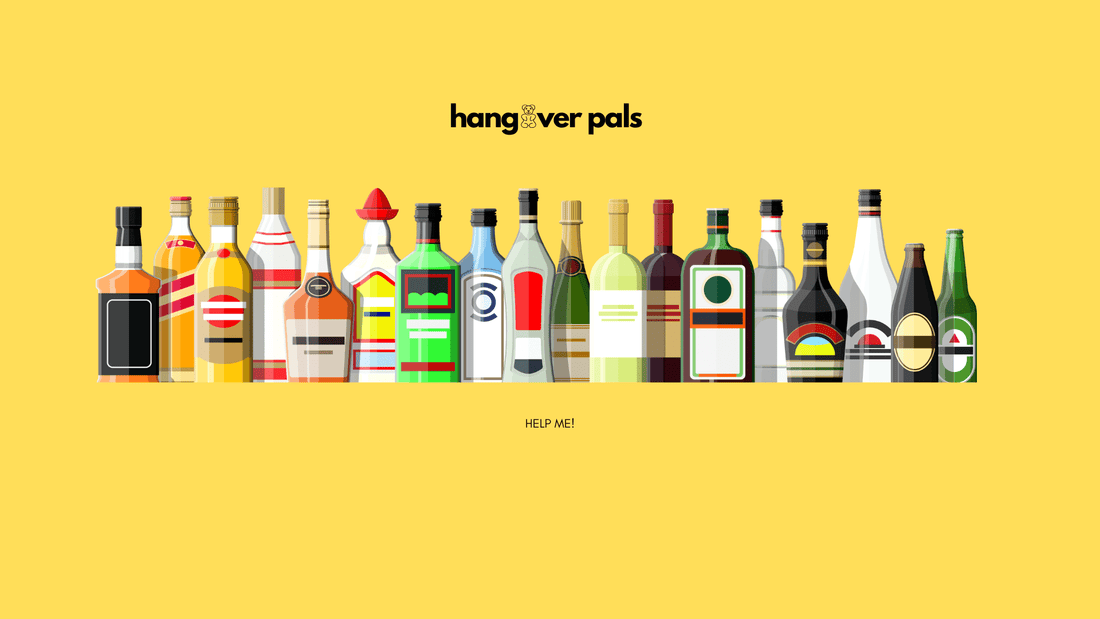
What Does a Hangover Feel Like? 15 Symptoms You Should Know
Share
Understanding Hangovers
A hangover is the collection of unpleasant physical and mental symptoms you experience after drinking alcohol. While the intensity varies, most people recognize the sluggish mornings, pounding headaches, and unsettling nausea.
Hangovers are caused by a mix of dehydration, chemical imbalances, and toxins produced when your body breaks down alcohol.
Why Do Hangovers Happen?
Three main reasons:
-
Dehydration – Alcohol acts as a diuretic, making you lose water and electrolytes.
-
Acetaldehyde build-up – A toxic by-product of alcohol metabolism that causes inflammation.
-
Electrolyte imbalance & low blood sugar – Leading to fatigue, dizziness, and weakness.
Physical Symptoms of a Hangover
Headache & Sensitivity to Light
Hangover headaches come from dilated blood vessels and inflammation. Bright light often makes them worse, which is why sunglasses indoors might feel tempting.
Nausea and Upset Stomach
Alcohol irritates your stomach lining and increases acid production, leaving you with indigestion, nausea, or even vomiting.
Fatigue & Weakness
Alcohol disrupts REM sleep, so even if you sleep for hours, you wake up exhausted, shaky, and foggy.
Dizziness & Poor Balance
Your inner ear fluid is affected, and low hydration makes dizziness more noticeable.
Increased Thirst & Dry Mouth
Because alcohol pulls water from your system, you wake up parched, craving water.
Muscle Aches & Body Pain
Inflammation and dehydration lead to sore muscles and joint pain, making movement harder.
Emotional & Cognitive Symptoms of a Hangover
Anxiety (Hangxiety)
Ever felt your anxiety spike after drinking? Alcohol messes with GABA and serotonin, two brain chemicals that affect calmness and mood. This makes worry and restlessness worse.
Irritability & Mood Swings
Low blood sugar and poor sleep leave you snappy, emotional, and short-tempered.
Brain Fog & Memory Gaps
Your brain struggles to process information, and alcohol disrupts short-term memory formation, leading to “blackouts” or foggy recall.
How Long Does a Hangover Last?
-
Mild hangovers: 4–8 hours
-
Moderate hangovers: Up to 24 hours
-
Severe cases: 36+ hours
Factors like how much you drank, your hydration, and overall health determine the duration.
How to Ease the Symptoms
-
Rehydration sachets or electrolyte drinks – Replenish salts faster than water.
-
Nutritious breakfast – Eggs, oatmeal, or fruit to stabilize blood sugar.
-
Rest – Sleep remains the best recovery tool.
-
Ginger tea – Soothes nausea naturally.
Prevention Tips
-
Drink a glass of water between alcoholic drinks.
-
Eat a balanced meal before drinking.
-
Choose clear liquors (like vodka) over darker ones (like whiskey) that contain more congeners.
-
Know your limits—moderation is the best prevention.
Frequently Asked Questions (FAQs)
1. What does a mild hangover feel like?
Usually just a slight headache, thirst, and fatigue.
2. Can you have a hangover without drinking much?
Yes—some people are more sensitive to alcohol.
3. Does caffeine help with hangovers?
It may boost alertness but can worsen dehydration.
4. Why do hangovers feel worse with age?
The body processes alcohol slower as we get older.
5. Is nausea the most common hangover symptom?
It’s one of the most frequent, but fatigue and headache are just as common.
6. Can I completely prevent a hangover?
Not always, but drinking moderately and staying hydrated lowers the risk.
Conclusion: Recognizing What a Hangover Feels Like
So, what does a hangover feel like? It’s a mix of physical exhaustion, headaches, nausea, and emotional discomfort like anxiety or irritability. Understanding the symptoms helps you prepare remedies—and most importantly—take steps to prevent them in the first place.
👉 For more medical details, see the Mayo Clinic’s overview on hangovers: Mayo Clinic – Hangover Symptoms & Causes
